Hiking with macaques! Foreign students experience diverse environment on campus
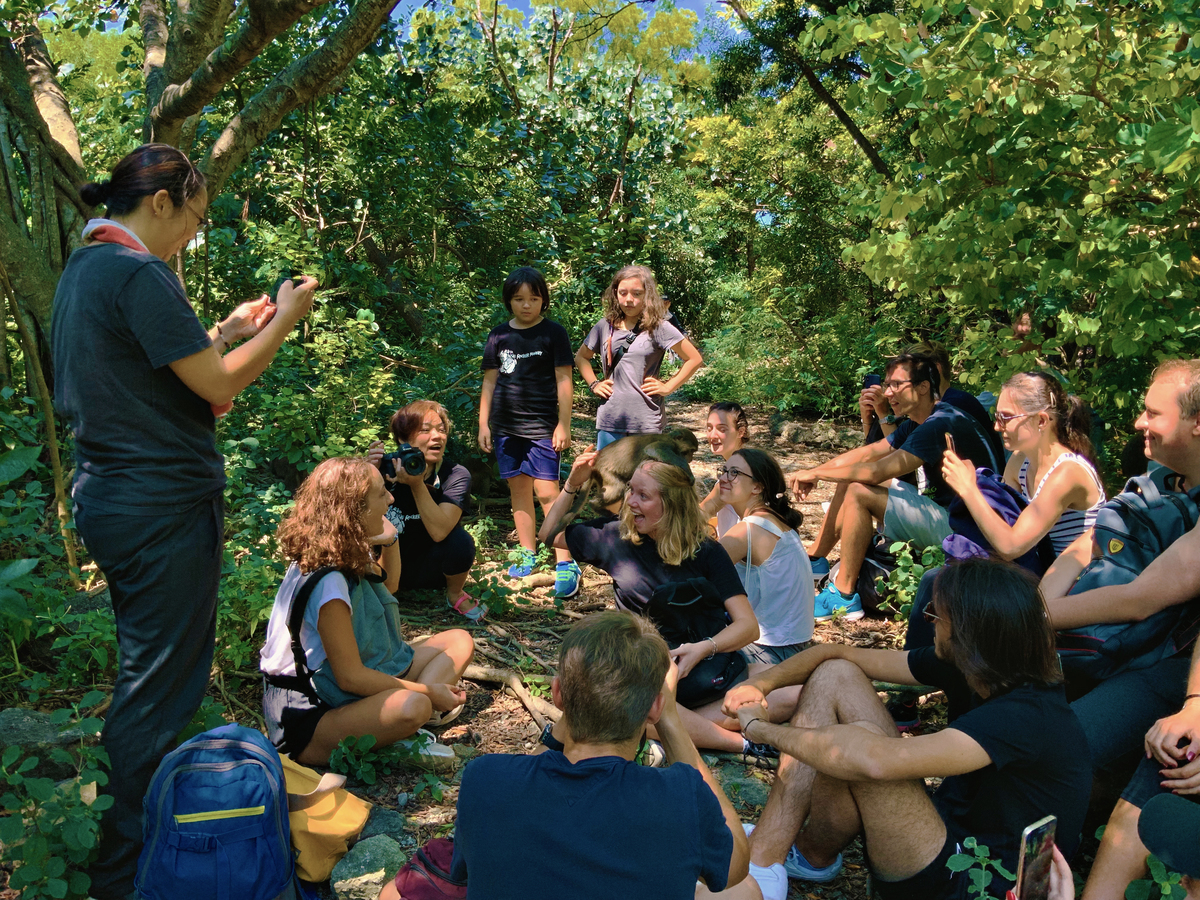
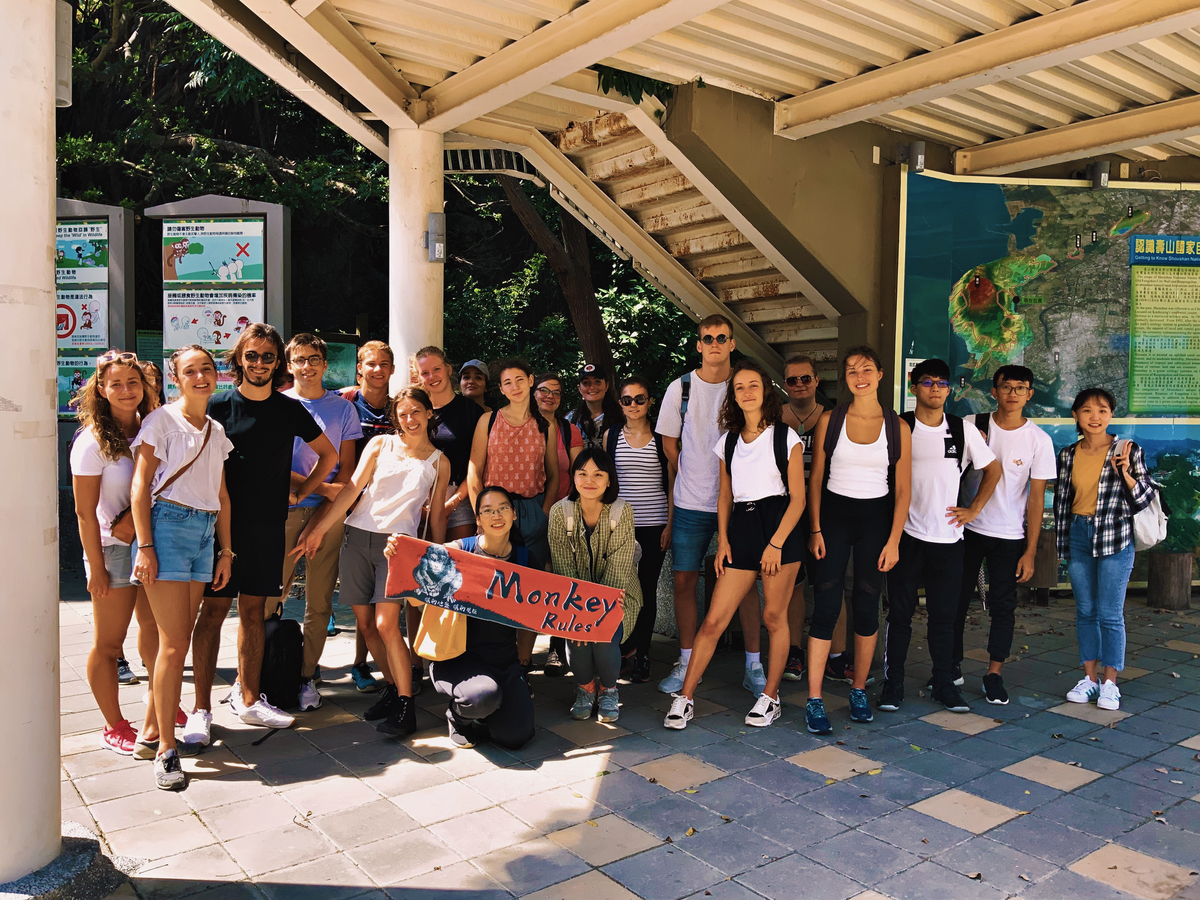
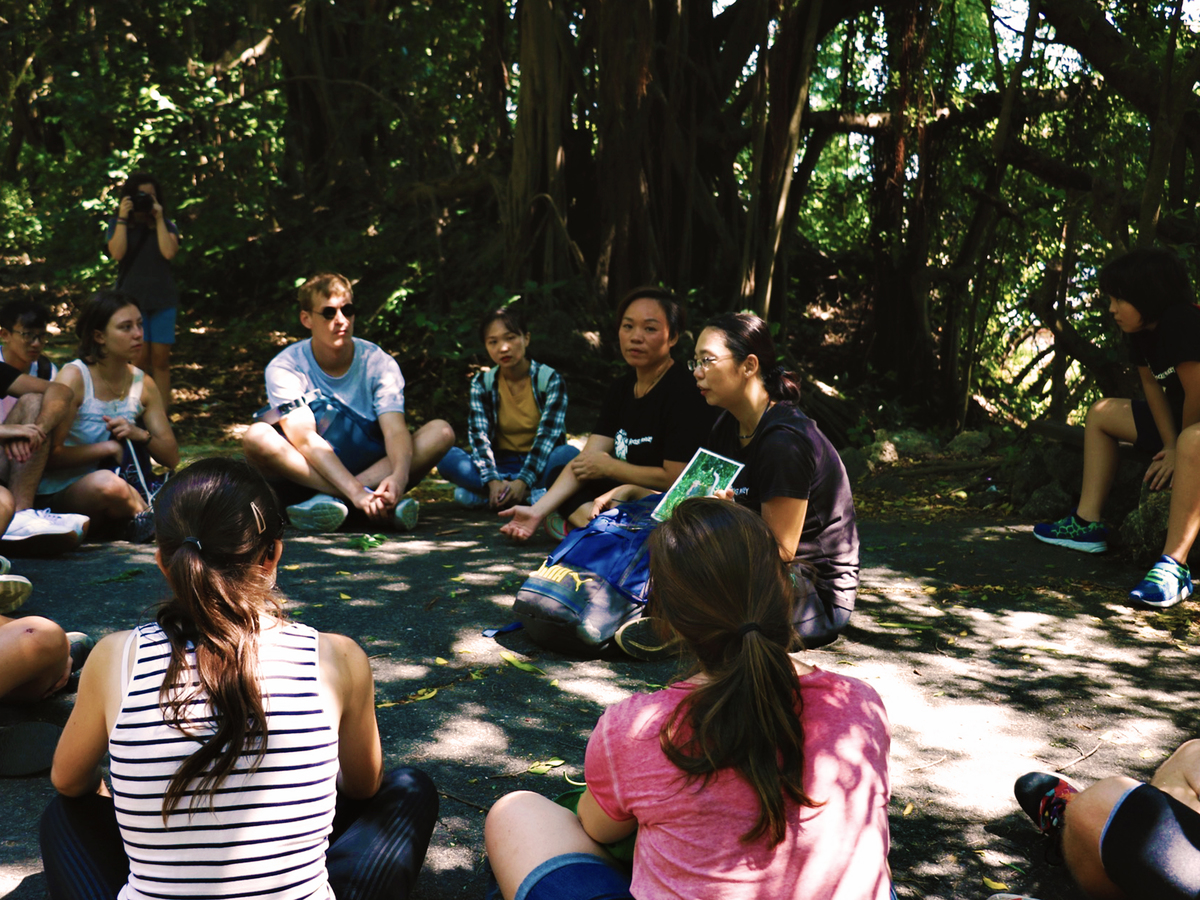
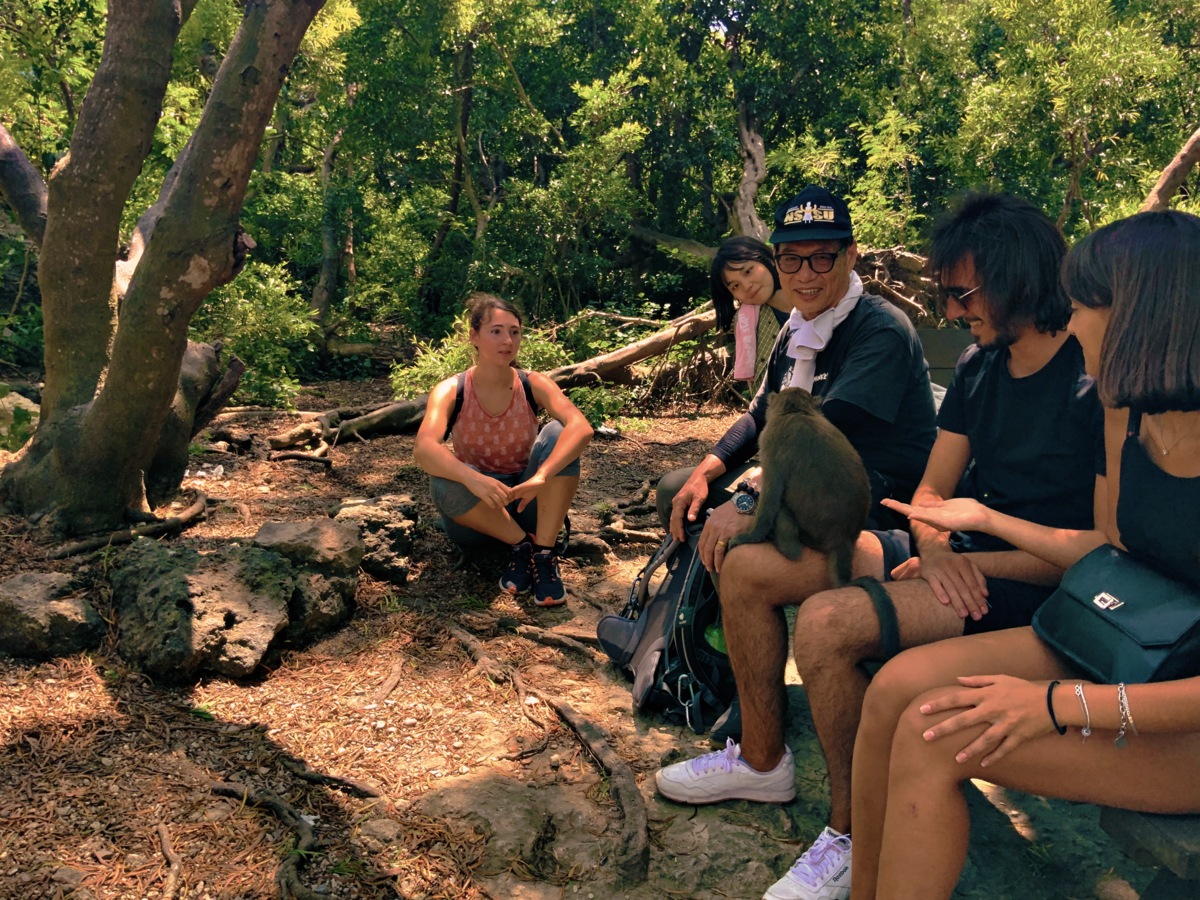
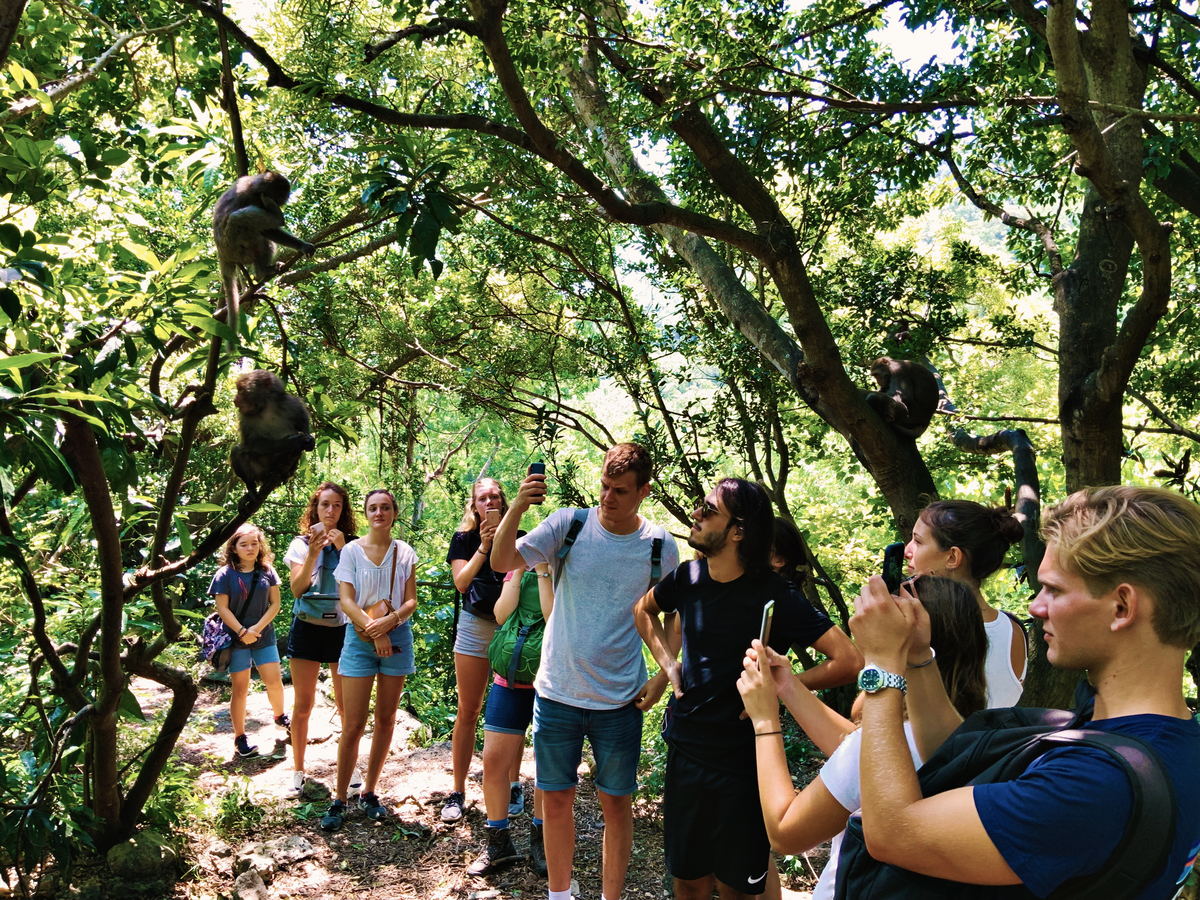
[Provided by the Office of International Affairs]
Hiking with macaques! On September 26th the Office of International Affairs of National Sun Yat-sen University in cooperation with the Association for Coexistence with Macaca Cyclopis (台灣獼猴共存推廣協會) organized a monkey guided tour to Shoushan (also called Monkey Mountain) especially for newly-arrived international exchange students to get to know better the diverse natural environment by the Sizihwan Bay and the beauty of the abundant fauna and flora of the campus extending from the sea to the mountains.
The Association for Coexistence with Macaca Cyclopis has been cooperating with NSYSU for a long time, promoting education on Formosan Rock Macaques (or Taiwanese macaques) and organizing tours to Shoushan. Every year, when new students come, the Association briefly introduces the macaques, explains basic interaction with them, and promotes the tours with leaflets and posters on campus. The Association has been organizing guided tours for 8 years now, much appreciated by students, teachers and other participants. Many international students reacted enthusiastically, cried out repeatedly and fought for the best shot of naughty macaques. Many people changed their idea about macaques, understood their habitat and learned how to behave in their presence.
The Secretary of the Association for Coexistence with Macaca Cyclopis Mei-Yin Lin said that the purpose of the tours is to educate students, let them know macaques and learn how to interact with them, interpret their facial expressions, moves, emotional responses. For example, a grinning macaque is not smiling – it’s a sign of anxiety or fear. A macaque usually expresses its emotions showing teeth, thus it is best to avoid showing yours in encounter with it. The tour guide takes you to the depth of the Shoushan ecosystem, thus macaques often come close to the group. Mei-Yin Lin recommends not to take initiative to make contact with the macaques. If a macaque gets close to you, or even climbs on you, don’t panic. Behave naturally, maintain a stable upright position, and leave slowly (the monkey will get off the Uber eventually. ).
[Edited by Public Affairs Division]
Hiking with macaques! On September 26th the Office of International Affairs of National Sun Yat-sen University in cooperation with the Association for Coexistence with Macaca Cyclopis (台灣獼猴共存推廣協會) organized a monkey guided tour to Shoushan (also called Monkey Mountain) especially for newly-arrived international exchange students to get to know better the diverse natural environment by the Sizihwan Bay and the beauty of the abundant fauna and flora of the campus extending from the sea to the mountains.
The Association for Coexistence with Macaca Cyclopis has been cooperating with NSYSU for a long time, promoting education on Formosan Rock Macaques (or Taiwanese macaques) and organizing tours to Shoushan. Every year, when new students come, the Association briefly introduces the macaques, explains basic interaction with them, and promotes the tours with leaflets and posters on campus. The Association has been organizing guided tours for 8 years now, much appreciated by students, teachers and other participants. Many international students reacted enthusiastically, cried out repeatedly and fought for the best shot of naughty macaques. Many people changed their idea about macaques, understood their habitat and learned how to behave in their presence.
The Secretary of the Association for Coexistence with Macaca Cyclopis Mei-Yin Lin said that the purpose of the tours is to educate students, let them know macaques and learn how to interact with them, interpret their facial expressions, moves, emotional responses. For example, a grinning macaque is not smiling – it’s a sign of anxiety or fear. A macaque usually expresses its emotions showing teeth, thus it is best to avoid showing yours in encounter with it. The tour guide takes you to the depth of the Shoushan ecosystem, thus macaques often come close to the group. Mei-Yin Lin recommends not to take initiative to make contact with the macaques. If a macaque gets close to you, or even climbs on you, don’t panic. Behave naturally, maintain a stable upright position, and leave slowly (the monkey will get off the Uber eventually. ).
[Edited by Public Affairs Division]
Click Num:
Share
